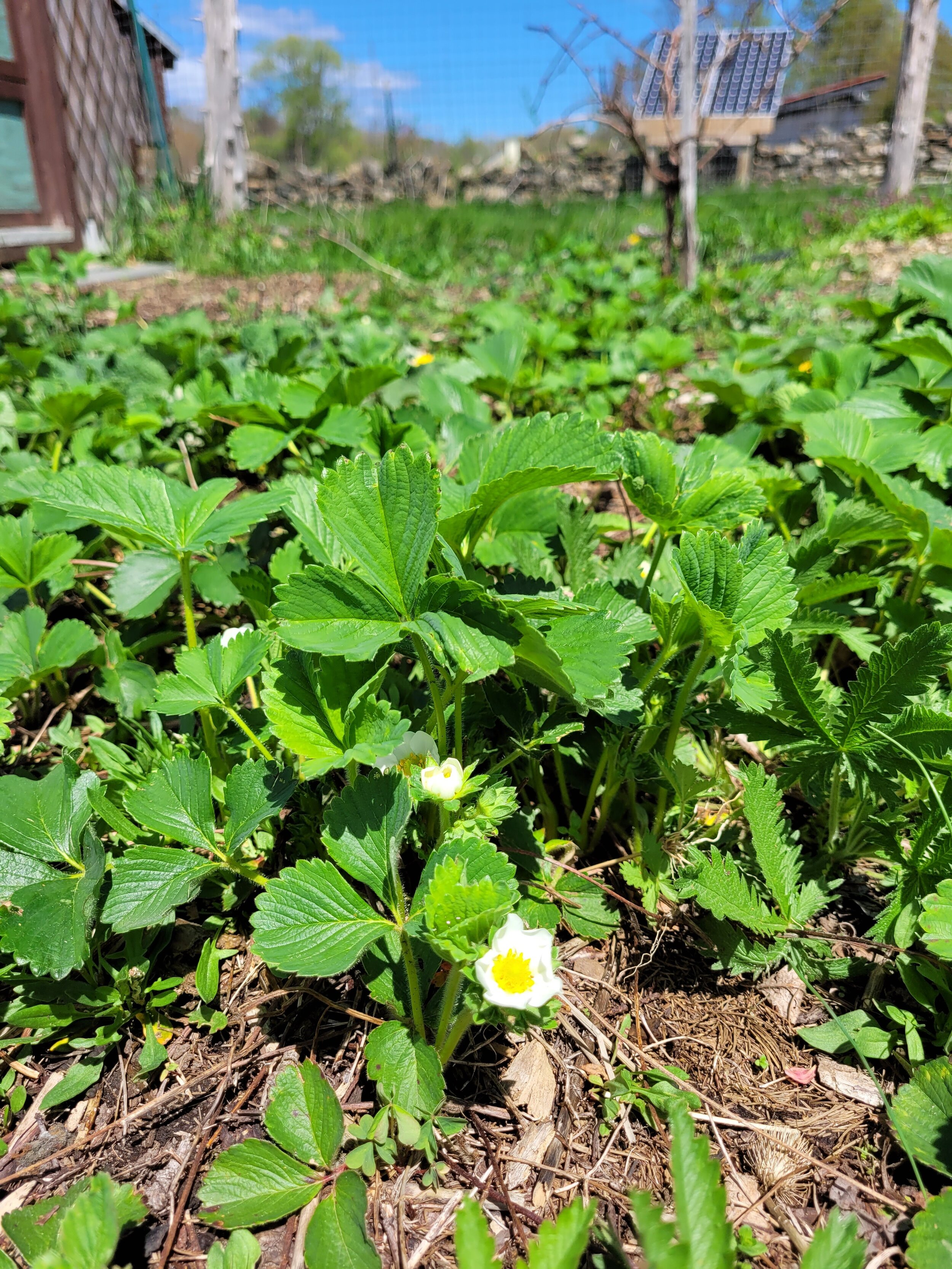 Image 1 of 3
Image 1 of 3

 Image 2 of 3
Image 2 of 3

 Image 3 of 3
Image 3 of 3




Elderberry
Sambucus canadensis, Sambucus nigra
Description
Elderberries are vigorously growing shrubs with beautiful compound leaves and large, white umbel flowers that are adored by the bees and other beneficial insects. An established plant can put on up to 10 feet of growth in a single season after being cut back to the ground the previous winter. Elderberries take well to serious winter pruning, and in addition to helping keep them manageable, it also keeps the plants vigorous and healthy.
Elderberry plants produce lots of tiny, dark purple berries that are high in anthocyanins and other antioxidants, as well as anti-inflammatory, anti-viral, and immune-boosting compounds. The berries can be cooked into a syrup, infused in alcohol for a tincture, or sweetened and baked into pies!
Elderberries propagate easily from cuttings, which will root just about any time they are put in the ground, and also from seeds. Birds love to eat the berries, so you can expect to find the seedlings pooping up in new places once you have a few established plants.
We offer both bundles of cuttings for you to root at home, as well as already-rooted plants.
Site Preference
Likes full sun but can do well in moderate shade if needed. Tolerant of most soil types. Happy with wet feet, loves pond and stream edges.
Hardiness
Zone 4
Sambucus canadensis, Sambucus nigra
Description
Elderberries are vigorously growing shrubs with beautiful compound leaves and large, white umbel flowers that are adored by the bees and other beneficial insects. An established plant can put on up to 10 feet of growth in a single season after being cut back to the ground the previous winter. Elderberries take well to serious winter pruning, and in addition to helping keep them manageable, it also keeps the plants vigorous and healthy.
Elderberry plants produce lots of tiny, dark purple berries that are high in anthocyanins and other antioxidants, as well as anti-inflammatory, anti-viral, and immune-boosting compounds. The berries can be cooked into a syrup, infused in alcohol for a tincture, or sweetened and baked into pies!
Elderberries propagate easily from cuttings, which will root just about any time they are put in the ground, and also from seeds. Birds love to eat the berries, so you can expect to find the seedlings pooping up in new places once you have a few established plants.
We offer both bundles of cuttings for you to root at home, as well as already-rooted plants.
Site Preference
Likes full sun but can do well in moderate shade if needed. Tolerant of most soil types. Happy with wet feet, loves pond and stream edges.
Hardiness
Zone 4
Sambucus canadensis, Sambucus nigra
Description
Elderberries are vigorously growing shrubs with beautiful compound leaves and large, white umbel flowers that are adored by the bees and other beneficial insects. An established plant can put on up to 10 feet of growth in a single season after being cut back to the ground the previous winter. Elderberries take well to serious winter pruning, and in addition to helping keep them manageable, it also keeps the plants vigorous and healthy.
Elderberry plants produce lots of tiny, dark purple berries that are high in anthocyanins and other antioxidants, as well as anti-inflammatory, anti-viral, and immune-boosting compounds. The berries can be cooked into a syrup, infused in alcohol for a tincture, or sweetened and baked into pies!
Elderberries propagate easily from cuttings, which will root just about any time they are put in the ground, and also from seeds. Birds love to eat the berries, so you can expect to find the seedlings pooping up in new places once you have a few established plants.
We offer both bundles of cuttings for you to root at home, as well as already-rooted plants.
Site Preference
Likes full sun but can do well in moderate shade if needed. Tolerant of most soil types. Happy with wet feet, loves pond and stream edges.
Hardiness
Zone 4















